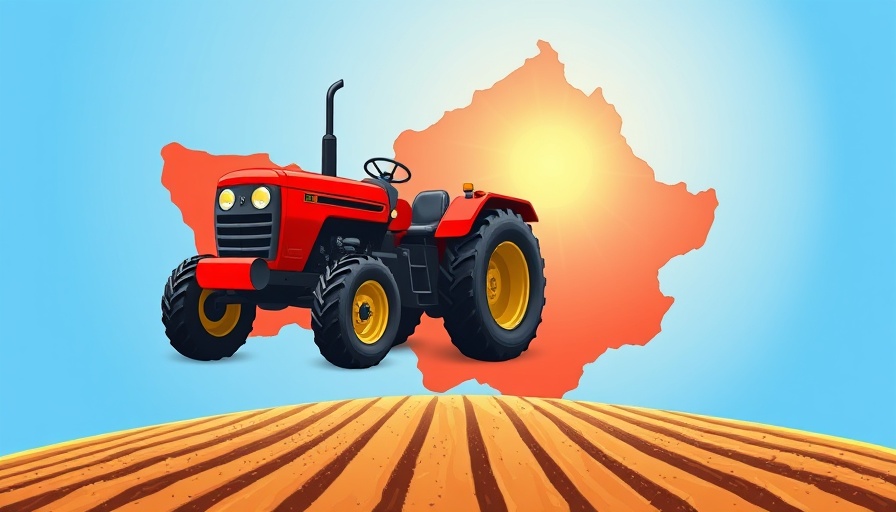
A Reflective Review of the 2024 Crop Season
As the 2024 crop season draws to a close, farmers and agricultural professionals are pausing to reflect on the outcomes across the Northeast Region. The latest episode of the Louisiana Delta Crop Podcast, hosted by Kylie Miller along with guests Bruce and Dr. Shelly Kerns, delves into an insightful discussion highlighting triumphs and challenges faced by cotton, corn, soybeans, and rice growers this season.
Crops in Focus: Performance and Outlook
This year presented both opportunities and hurdles. Louisiana farmers adapted to various climate conditions that influenced crop yields. For cotton growers and corn growers, the decision on when to sow and the type of fertilizers to apply proved instrumental in determining the health of their crops. The discussion further illuminated the necessity for innovation in farming practices to enhance productivity. Dr. Kerns noted, "Understanding regional climate patterns and soil health is crucial for making informed decisions regarding fertilizers and pest management strategies. This is essential, especially for cotton and corn cultivation."
The Importance of Cover Crops and Soil Health
One significant theme discussed was the role of cover crops. Farmers are increasingly recognizing their value in improving soil health, preventing erosion, and controlling pests. This shift not only helps in sustaining the soil quality but also provides long-term economic benefits. The podcast emphasized that effective cover crop choices can lead to better weed management and reduce reliance on chemical interventions, which aligns with growing trends towards sustainable agriculture.
Navigating Crop Insects and Environmental Challenges
As crop insects continue to evolve and adapt, collaboration among agriculture professionals is vital in developing effective strategies for management. This season, farmers reported seeing varying challenges with pest invasions, particularly in corn and soybean fields. The integrative approach involving crop rotation, biological controls, and timely application of insecticides was cited as critical for managing infestations effectively. In this context, the discussion pointed to the potential benefits of ongoing education and research in enhancing farmers’ abilities to confront these challenges.
The Farm Bill: Opportunities for Growth
The conversation also touched on upcoming changes in agricultural policy, particularly concerning the farm bill. Many growers are counting on this legislation to provide necessary support as they invest into the forthcoming season. Whether through subsidies for cotton growers or benefits for corn growers, this support can significantly influence decisions regarding planting strategies and investments in technology and resources like irrigation systems.
Looking Ahead: Predictions for 2025
As we transition to 2025, agriculture professionals are setting their sights on the implications of this year’s experiences. Experts anticipate that advancements in technology, including biotechnology and precision agriculture, will play a pivotal role in enhancing crop management practices. Kylie Miller noted, "Adapting to technological advancements will not only help in maximizing yields but also ensure that farmers remain resilient in the face of environmental uncertainties."
Conclusion: Be Prepared for Future Seasons
As the 2024 crop season winds down, the insights gathered provide a foundation for strategic planning toward the next planting cycle. Farmers and stakeholders are encouraged to take an active approach in implementing the lessons learned and to remain engaged in discussions regarding agricultural policies and practices. Stay informed, adapt quickly, and leverage emerging technologies to shape the future of farming in Louisiana.
For more in-depth discussions and updates on agricultural advancements, subscribe to the Louisiana Delta Crop Podcast for expert insights and tips for the next growing season.
 Add Row
Add Row  Add
Add 




Write A Comment